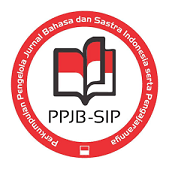Efektivitas Pembelajaran Jarak Jauh Terhadap Mahasiswa Unsika Pada Saat Pandemi Covid-19
DOI:
https://doi.org/10.23887/jjpbs.v11i1.31464Abstract
Sejak pandemi Covid-19 dinyatakan masuk ke Indonesia banyak sektor-sektor kehidupan terkena dampaknya terutama sektor pendidikan. Pada Maret 2020 diberlakukannya peserta didik belajar di rumah atau sistem pembelajaran jarak jauh. Banyak kampus belum mempunyai insfrastruktur yang memadai untuk melakukan pembelajaran daring. Banyak aplikasi yang dipakai dalam proses pembelajaran jarak jauh agar tujuan pembelajaran tercapai. Tujuan analisis ini, untuk mengetahui keefektifan pembelajaran jarak jauh terhadap mahasiswa Unsika di masa pandemi Covid-19. Terdapat kendala yang dialami oleh mahasiswa. Beberapa aplikasi ada yang efektif untuk mata kuliah teori sedangkan untuk praktikum tidak efektif. Penelitian ini menggunakan penelitian deskriptif kualitatif dengan teknik pengumpulan data menggunakan kuesioner di Google Form. Upaya yang dapat dilakukan untuk meningkatkan efektifitas proses pembelajaran harus ada kerja sama antara pendidik dan peserta didik.
Kata Kunci: Pembelajaran Daring; Media; Covid-19.
Downloads
Published
Issue
Section
License
Authors who publish with the Jurnal Pendidikan Bahasa dan Sastra Indonesia Undiksha agree to the following terms:- Authors retain copyright and grant the journal the right of first publication with the work simultaneously licensed under a Creative Commons Attribution License (CC BY-SA 4.0) that allows others to share the work with an acknowledgment of the work's authorship and initial publication in this journal
- Authors are able to enter into separate, additional contractual arrangements for the non-exclusive distribution of the journal's published version of the work (e.g., post it to an institutional repository or publish it in a book), with an acknowledgment of its initial publication in this journal.
- Authors are permitted and encouraged to post their work online (e.g., in institutional repositories or on their website) prior to and during the submission process, as it can lead to productive exchanges, as well as earlier and greater citation of published work. (See The Effect of Open Access)







